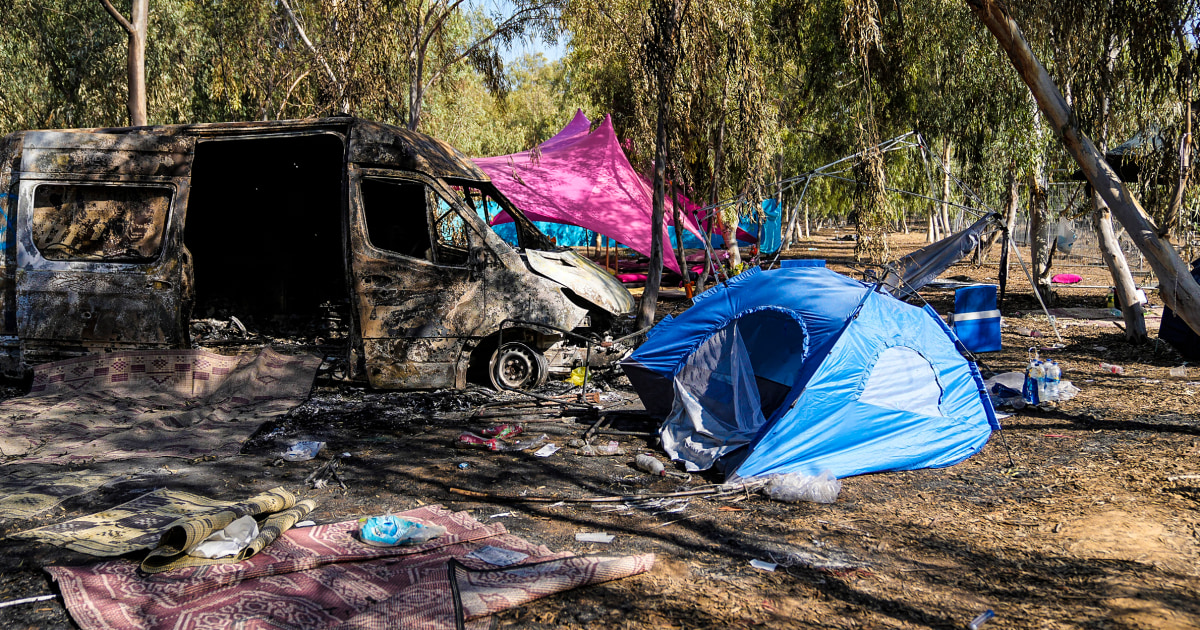"While there can be no turning back, it is now crucial that the Spanish government and its institutions monitor the real impact of the early release of perpetrators of violence on the lives of victims, seek to minimise re-victimisation and ensure their protection." This is how Reem Al Salem, UN special rapporteur on violence against women and girls, said on Tuesday about the so-called law of only yes is yes, one of the star norms of the Ministry of Equality. The statement of this independent expert comes the first of the two days in which the Criminal Chamber of the Supreme Court meets to establish criteria for the reductions of sentences that led to the entry into force of the norm. Until May 1, there are 1,079 sentence reductions and 108 releases of sex offenders, according to the latest balance of the General Council of the Judiciary (CGPJ).
These figures have made the special rapporteur Al Salem has expressed concern on Tuesday about the fact that the adoption of the new norm, with sexual consent as the axis, has caused reductions for aggressors. These figures, those of special rapporteurs, are independent specialists who analyze and deal with specific issues or countries for the organization, but this does not interfere with their work, which they do on a voluntary basis and without salary. Why or when they issue their communiqués is something in which the UN does not intercede, and they explain that usually these rapporteurs do so when they have made their analysis, even if it is not immediately to when concrete events happen.
Thus, although the reductions of sentences and releases began last fall, Al Salem has pronounced this Tuesday, in the pre-election period and when the Supreme Court debates to set a criterion for the reduction of sentences. Among the issues that concern him about the norm, he has also referred to the fact that the law "has not been accompanied by resources to guarantee its correct application", since, as he has stated, it is estimated that a third of the victims of sexual violence in Spain have not received any compensation for the violence suffered, and about half of the victims do not receive any compensation provided for in the sentences imposed by the courts. to their aggressors.
Al Salem also believes that "for a country with a high rate of femicides, reducing the sentences of perpetrators of sexual violence – against women and minors – sends the wrong message about the State's priorities in ending violence against women and children and fighting impunity for such crimes." and that "the unfortunate consequence of the law could have been avoided if more attention had been paid to the voices of the various stakeholders who had warned against this obstructive consequence, such as those expressed by civil society organizations, politicians and the General Council of the Judiciary".
And although he points out some positive issues – he mentions the request for apologies to the victims by the President of the Government and the modification of the law, approved last April with a proposal of the PSOE, by which sentences are aggravated again when there is violence or intimidation or when the victim has annulled his will, It also regrets that "the negative consequences" have "overshadowed many positive aspects of the law", such as "preventive measures to combat sexual violence, recognition of victims' rights and facilitation of their access to remedies, emphasis on the State's obligation to provide legal and medical assistance, and guarantees of the right to reparation".
In one of the studies of the Antigone Research Group of the Autonomous University of Barcelona —Sexual violence in the Spanish State: Legal framework and jurisprudential analysis—, an analysis of 167 sentences between 2016 and 2017 in Madrid, Catalonia and Andalusia was made. That report reflected that in the rulings they studied, 6% had a waiver of compensation. And in those that don't, compensation for sexual assault and abuse "is miserable," the researchers wrote.
Between 58% and 60% have compensation for moral damages "less than 6,000 euros, being practically 42% of them less than 3,000". And they affirmed that "with these very small amounts the damage suffered is being minimized, it is relativized until it is taken to the background, sometimes giving the impression that the years of imprisonment to which the aggressor is sentenced compensate for the moral damage suffered by the victim" and "it is thus obvious that the moral damage of the victim can last a lifetime, that aggression can condition their sexual, sentimental, work, family life."
Since its entry into force in October 2022, the new norm establishes that compensation "for material and moral damages", in accordance with the criminal laws on civil liability derived from crime, "must guarantee the economically assessable satisfaction of, at least, the physical and psychological damage, including moral damage and damage to dignity; loss of opportunities, including opportunities for education, employment and social benefits; material damage and loss of income, including loss of profits; social damage, understood as damage to the life project; therapeutic, social and sexual and reproductive health treatment".
Beyond what it establishes for judicial rulings, the articles of the norm include economic aid for two of the central issues of the law itself, and to which the UN rapporteur refers, the recovery and reparation of the victims. However, the Royal Decree that was supposed to regulate them has been left in limbo after the dissolution of the Cortes and the accelerated call for general elections.
Consent
Regarding the substance of the rule, Al Salem believes that "using the threshold of whether or not there was consent as the burden of proof is meaningless in many situations and can lead to the burden of proof falling on the victims and not on the aggressors", citing cases of trafficking in women for the purpose of sexual exploitation and abuse, and exploitation of prostitution and pornography, in which consent is vitiated, not free.
On the one hand, the norm establishes in any case as violence all "acts of a sexual nature that are not consensual or that condition the free development of sexual life in any public or private sphere, which includes sexual assault, sexual harassment and the exploitation of the prostitution of others", in addition to "non-consensual pornography and sexual extortion".
On the other hand, in a judicial process for sexual violence, as in any other, the facts of which the alleged aggressor is accused must always be proven. Although historically, due to the very functioning of sexual violence and the stereotypes that surround it, in many cases the lack of physical evidence, or the habitual paralysis in the face of a threat suffered by the victims, has led to reduced sentences or even acquittals of the aggressors.

/cloudfront-eu-central-1.images.arcpublishing.com/prisa/VYGYRW6BDJAUTNU74SWHIDDY7M.jpg)


/cloudfront-eu-central-1.images.arcpublishing.com/prisa/OJSQ7GWB5BC4XBQDMMJFYJF5BU.jpg)




